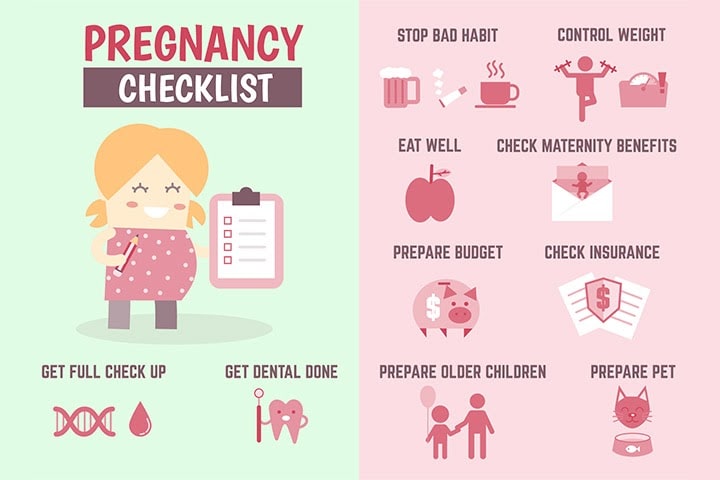
Planning for Pregnancy: A Comprehensive Guide for Prospective Parents
Introduction
Pregnancy is a momentous journey that requires careful planning and preparation. By taking proactive steps before conceiving, prospective parents can optimize their health, increase their chances of a healthy pregnancy, and ensure the well-being of their future child. This comprehensive guide will provide an in-depth overview of the essential aspects of planning for pregnancy, empowering couples with the knowledge and resources they need to embark on this transformative experience with confidence.
Preconception Health
1. Medical Evaluation:
- Consult with a healthcare provider for a preconception checkup to assess overall health, identify potential risk factors, and discuss any necessary vaccinations.
- Screen for genetic disorders, infectious diseases, and chronic conditions that may impact pregnancy.
- Optimize weight and body mass index (BMI) to reduce the risk of complications.
2. Nutrition and Exercise:
- Adopt a balanced diet rich in fruits, vegetables, whole grains, and lean protein.
- Maintain a healthy weight and engage in regular physical activity to improve overall well-being.
- Limit caffeine and alcohol consumption.
3. Lifestyle Modifications:
- Quit smoking and avoid secondhand smoke exposure.
- Reduce stress through relaxation techniques such as yoga, meditation, or spending time in nature.
- Get adequate sleep and establish a regular sleep-wake cycle.
4. Prenatal Vitamins:
- Start taking a prenatal vitamin containing folic acid, iron, and other essential nutrients at least one month before conception.
- Folic acid is crucial for preventing neural tube defects in the developing fetus.
Timing and Conception
1. Age and Fertility:
- Female fertility declines with age, especially after 35.
- Men’s fertility may also decrease with age, but to a lesser extent.
- Consider your age and fertility status when planning for pregnancy.
2. Ovulation Tracking:
- Identify your fertile window by tracking your menstrual cycle and using ovulation predictor kits.
- The most fertile days are typically 5-6 days before ovulation.
3. Conception Techniques:
- Engage in regular unprotected intercourse during the fertile window.
- Consider using fertility aids such as ovulation induction medications or intrauterine insemination (IUI) if necessary.
4. Medical Intervention:
- If natural conception is unsuccessful, consult with a fertility specialist to explore assisted reproductive technologies (ART), such as in vitro fertilization (IVF).
Health and Safety During Pregnancy
1. Prenatal Care:
- Establish prenatal care with a healthcare provider as soon as possible after conception.
- Attend regular prenatal appointments for monitoring, screening, and education.
- Follow your provider’s recommendations for nutrition, exercise, and medication use.
2. Infection Prevention:
- Wash hands frequently and avoid contact with individuals who are sick.
- Get vaccinated against influenza and other infections as recommended by your healthcare provider.
- Practice safe food handling to prevent foodborne illnesses.
3. Environmental Hazards:
- Limit exposure to harmful chemicals, radiation, and excessive heat.
- Avoid smoking and secondhand smoke exposure.
- Use sunscreen and protective clothing when outdoors.
4. Travel:
- Consult with your healthcare provider before traveling during pregnancy.
- Consider travel insurance and research healthcare options at your destination.
- Take precautions to prevent mosquito bites and other infections.
Emotional and Psychological Preparation
1. Communication and Support:
- Openly communicate with your partner about your hopes, fears, and expectations.
- Seek support from family, friends, or a support group.
- Consider prenatal counseling or therapy to address any emotional challenges.
2. Education and Information:
- Attend childbirth classes and read books or articles about pregnancy and parenting.
- Stay informed about your health and the development of your baby.
- Trust your instincts and don’t hesitate to ask questions or seek guidance.
3. Self-Care and Mindfulness:
- Prioritize self-care through activities that bring you joy and relaxation.
- Practice mindfulness techniques to reduce stress and promote emotional well-being.
- Seek professional help if you experience any mental health concerns during pregnancy.
4. Financial Planning:
- Estimate the costs associated with pregnancy, childbirth, and childcare.
- Consider health insurance coverage, maternity leave policies, and other financial implications.
- Explore financial assistance programs if necessary.
Conclusion
Planning for pregnancy is a multifaceted journey that involves both physical and emotional preparation. By taking proactive steps to optimize health, track ovulation, and establish a supportive environment, prospective parents can increase their chances of a healthy pregnancy and lay the foundation for a thriving future for their child. Remember, the journey of parenthood begins long before conception, and by embracing the principles of planning and preparation, you can embark on this extraordinary adventure with confidence and joy.